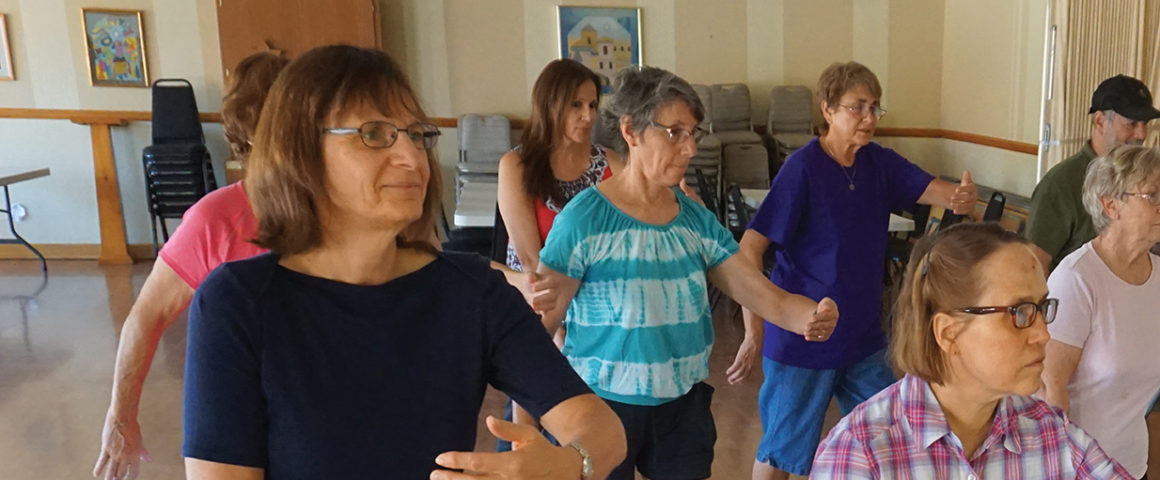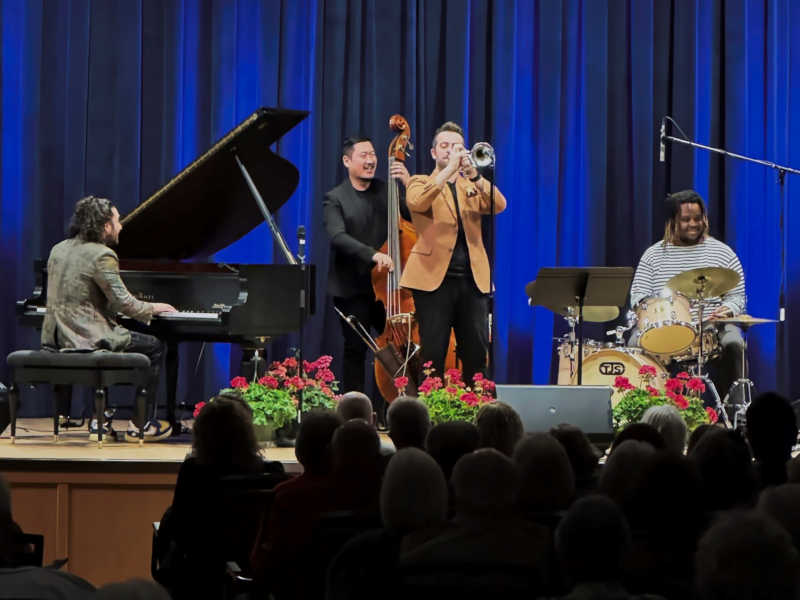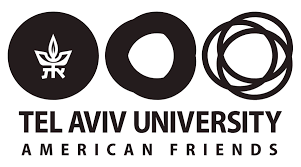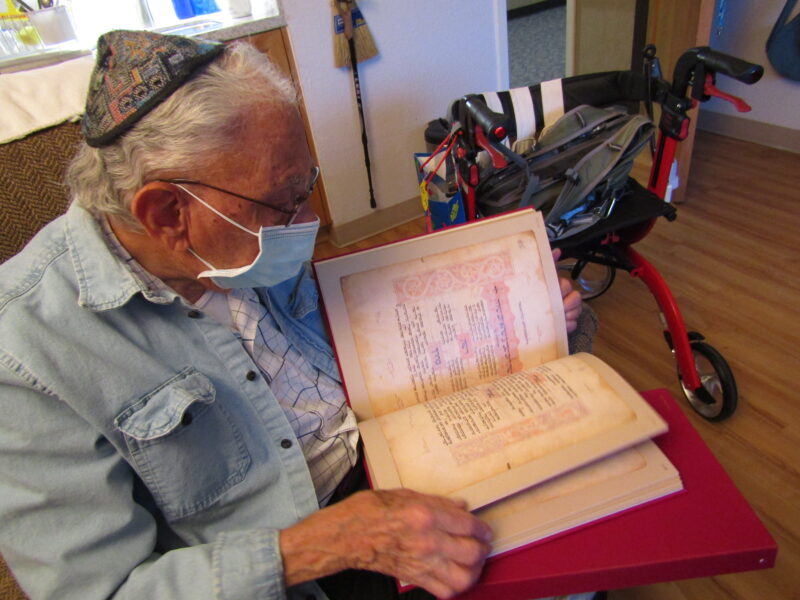Performing slow, gentle, flowing movements, participants in Debora Bloom’s Tai Chi classes are immersed in an ancient Chinese modality that has been compared to “moving meditation.” Known for enhancing the body, mind and spirit, these weekly hour-and-a-half classes, held at Temple Beth Shalom in Chandler and are open to everyone of any age in the community. The constellation of benefits of Tai Chi includes increased strength, flexibility, mobility, balance and more. This low-impact modality packs an ever more powerful punch. It is known to alleviate health problems such as poor circulation, stress, multiple sclerosis, fibromyalgia, Parkinson’s, Alzheimer’s and high blood pressure. “At the mental and spiritual level,” says Debora, “it is a method of developing an attitude of calm, compassion and reduced stress in life.”
A seasoned Tai Chi instructor of 32 years, Debora believes being in tune with your body helps you appreciate what it does for you. “In the beginning, as you observe the instructor, you perform moves you think you are seeing, but in time, you notice more and more nuances. Once your body goes with it, your mind is freed to go into a meditative state. It is really like the layers of an onion; you keep learning things on a deeper level.” Debora emphasizes that the class is like a learning community – less about the individual and more about the energy of the group.
A New York native and a graduate of Cornell University, Debora received her training in Taoist Tai Chi
(pronounced “dowist”), a style that focuses on the physiology of the body; namely, tendons, joints, the spine and connective tissues. “I used to be a runner and a practitioner of Taekwondo,” says Debora. “But had to give them up because of too much stress on my joints.” Searching for something to reduce stress in college led to her discovery of Tai Chi, which has evolved into a lifelong love affair. Debora laughs when she remembers initial attempts. “I drove the teachers crazy because I was overly analytical and kept wanting to ‘get it right.’ It took a while to realize that is not what Tai Chi is about.”
In her classes, she begins with a short warm up before participants begin seamlessly flowing from one pose to another, as they following Debora’s graceful, choreographed moves. “The essence of Tai Chi’s power lies in the pivoting of the spine to shift your weight,” explains Debora. “When you learn to turn your spine correctly, it increases your blood circulation, and in turn, your spinal fluid. The process affects the entire nervous system of your body, and has a profound effect.” At the conclusion of classes, she leads participants in gentle, relaxation exercises that are soothing and restorative. “There is medical evidence that if you do this kind of quiet relaxation after practicing something new, it somehow helps the brain to process what you’ve practiced,” explains Debora.
“Tai Chi moves, with exotic names like “White Stork Spreads Wings,” and “Grasp the Bird’sTail,” are based on the observations of animals in nature. “Tai Chi involves a very different way of thinking than Western philosophy,” says Debora. “It’s not about how quickly you can learn or how perfectly you can perform the moves. You give yourself permission to just let your body move, and trust that the process will just happen after a while. It’s a form of muscle memory; similar to learning to ride a bicycle.”
Tempe resident Susan Starrfield is in her second year of classes with Debora. “Tai Chi envelops me in a serene environment,” she says. “I was so happy with this class; I invited my husband to join me. We feel comfortable working with a group, and appreciate that Debora does not require us to remember the sequences.”
The beauty of Tai Chi is that it can be practiced anywhere, and by almost everyone; even those in wheelchairs. A 96-year-old student using two canes came to Debora’s class, based on a physical therapist’s recommendation. She soon could walk better and eventually practice Tai Chi with just one cane. Debora also recommends the practice of Tai Chi for tennis players and golfers because it involves the turning of the hips and thus the motion improves the players’ swings. She remembers a pro golfer whose coach sent him to her class.
Containing 108 moves, some of which are repetitive, students of Tai Chi are never really done learning. Moves, such as turning of the spine, and footwork are continually refined in both the beginning and advanced classes. “The goal of the beginning class,” explains Debora, “is to become able to follow along in the group, moving with everyone, as opposed to learning or memorizing.”
She relates her practice to Judaism because it follows the idea of repairing the world. “It is something I can give to anyone who wants to learn; any faith, background or ability,” she says. “It’s really intended to help people improve their health. This is something I love and want to do. I feel like the practice elevates my life.”
Debora is a volunteer instructor and does not charge for her classes, which are open to the community. There is, however, a nominal fee charged by Temple Beth Shalom. To learn more about this compelling and therapeutic form of exercise, contact Debora at taichi@tbsev.org.






